|
Books Should Be Free Loyal Books Free Public Domain Audiobooks & eBook Downloads |
|
|
Books Should Be Free Loyal Books Free Public Domain Audiobooks & eBook Downloads |
|
Poetry |
|---|
|
Book type:
Sort by:
View by:
|
By: L. (Launcelot) Cranmer-Byng (1872-1945) | |
|---|---|
 A Lute of Jade : selections from the classical poets of China
A Lute of Jade : selections from the classical poets of China
| |
By: L. H. (Lydia Howard) Sigourney (1791-1865) | |
|---|---|
 The Man of Uz, and Other Poems
The Man of Uz, and Other Poems
| |
By: L. P. Hubbard (?-?) | |
|---|---|
 Little Book for a Little Cook
Little Book for a Little Cook
This charming little book compiles together a number of recipes, set out in an easy to understand manner, along with a poetic story about the stages of bread production. This book was produced as a promotional for a flour production company called Pillsbury. This is a "modern" update compared to the original edition of the book. This version has exact oven temperature settings for each recipe included in a preface for the book, along with more precise suggestions for the baking time. The book has been written for children, however I am certain that adults could enjoy the book equally as much as a child would. | |
By: Laura Ann Young Pinney (1849-) | |
|---|---|
 Within the Golden Gate A Souvenir of San Francisco Bay
Within the Golden Gate A Souvenir of San Francisco Bay
| |
By: Laurence Hope (1865-1904) | |
|---|---|
 Hira-Singh's Farewell to Burmah
Hira-Singh's Farewell to Burmah
Adela Florence Nicolson was an English poet who wrote under the pseudonym Laurence Hope. She was born in England and joined her father in 1881, who was employed in the British Army at Lahore (The traditional capital of Punjab for a millennium, Lahore was the cultural centre of the northern Indian subcontinent which extends from the eastern banks of the Indus River to New Delhi.) Her father was editor of the Lahore arm of The Civil and Military Gazette, and it was he who in all probability gave Rudyard Kipling (a contemporary of his daughter) his first employment as a journalist... | |
By: Lawrence Mason (1882-1939) | |
|---|---|
 Genesis A Translated from the Old English
Genesis A Translated from the Old English
| |
By: Lennox Amott | |
|---|---|
 The Minstrel A Collection of Poems
The Minstrel A Collection of Poems
| |
By: Lenore Elizabeth Mulets (1873-?) | |
|---|---|
 Stories of Birds
Stories of Birds
This volume contains stories, poems, myths, and facts about lots of different birds, intended for teaching children. It is divided into nine parts, each covering a different type of bird. | |
By: Leolyn Louise Everett (1888-1971) | |
|---|---|
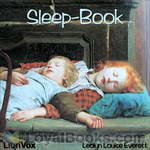 Sleep-Book
Sleep-Book
This is a compilation and publication of sleep-related poetry, exalting the delight of sleep, as well as bemoaning the lack of it. (written by Clarica) | |
By: Léonce Rabillon (1814-1886) | |
|---|---|
 La Chanson de Roland : Translated from the Seventh Edition of Léon Gautier
La Chanson de Roland : Translated from the Seventh Edition of Léon Gautier
| |
By: Lizzie Doten (1827-1913) | |
|---|---|
 Poems from the Inner Life
Poems from the Inner Life
Collection of reflective poetry by celebrated medium and clairvoyant, Lizzie Doten. She claims these poems were sent by her 'inner heaven', often while she was in a trance. She credits some of the poems to the spirits of Poe, Burns and Sprague, with whose work she was, apparently, unfamiliar. | |
By: Lodovico Ariosto (1474-1533) | |
|---|---|
 Orlando Furioso
Orlando Furioso
| |
By: Lola Ridge (1883-1941) | |
|---|---|
 Sun-Up and Other Poems
Sun-Up and Other Poems
| |
By: Lord Alfred Douglas (1870-1945) | |
|---|---|
 Placid Pug, and Other Rhymes
Placid Pug, and Other Rhymes
This is a collection of ten humorous verses by Lord Alfred Douglas. - Summary by Carolin | |
By: Lord Alfred Tennyson (1809-1892) | |
|---|---|
 Beauties of Tennyson
Beauties of Tennyson
A collection of Tennyson's poetry : 1 The Brook - 00:16 2 Song from "Maud" - 1:20 3 A Farewell - 2:34 4 Song from “Maud” - 3:26 5 Break, Break, Break - 4:53 6 From “Locksley Hall”- 5:43 7 Song from “Maud” - 6:43 8 Song from “The Princess” - 7:43 9 Lillian - 8:37 10 Ring out, Wild Bells - 9:52 11 From “The Princess” - 11:27 12 Song From “The Princess” - 12:43 13 From “Enoch Arden” - 13:58 14 From “Enoch Arden” - 15:36 15 The Charge of the Light Brigade- 16:56 16 From “The May Queen” - 18:51 17 Song from “The Princess” - 19:36 18 From “Harold” - 20:14 19 From “The Revenge” - 21:28 (From Sam Stinsson) | |
By: Lord George Gordon Byron | |
|---|---|
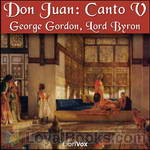 Don Juan, Canto V
Don Juan, Canto V
Juan, captured by Turkish pirates and sold into slavery is bought by a beautiful Princess as her toy-boy. Dressed as an odalisque, he is smuggled into the Sultan’s harem for a steamy assignation. Unbelievably, Byron’s publisher almost baulked at this feast of allusive irony, blasphemy (mild), calumny, scorn, lesse-majeste, cross-dressing, bestiality, assassination, circumcision and dwarf-tossing. This was the last Canto published by the stuffy John Murray (who had, however, made a tidy fortune on the earlier parts of the Epic)... | |
 Childe Harold's Pilgrimage: Canto IV
Childe Harold's Pilgrimage: Canto IV
Childe Harold's Pilgrimage is a lengthy narrative poem in four parts written by Lord Byron. It was published between 1812 and 1818 and is dedicated to "Ianthe". The poem describes the travels and reflections of a world-weary young man who, disillusioned with a life of pleasure and revelry, looks for distraction in foreign lands. In a wider sense, it is an expression of the melancholy and disillusionment felt by a generation weary of the wars of the post-Revolutionary and Napoleonic eras. The title comes from the term childe, a medieval title for a young man who was a candidate for knighthood. Canto IV describes Harold's travels in Italy. | |
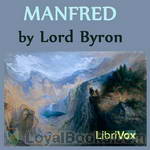 Manfred
Manfred
Manfred is a dramatic poem in three acts by Lord Byron, and possibly a self confessional work. A noble, Manfred, is haunted by the memory of some unspeakable crime. In seeking for forgetfulness and oblivion, he wanders between his castle and the mountains. He has several encounters with the people who try to assist him, as well as spirits that rule nature and human destiny. The poem explores themes of morality, religion, guilt and the human condition. | |
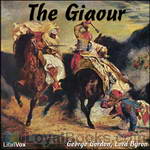 The Giaour
The Giaour
"The Giaour" is a poem by Lord Byron first published in 1813 and the first in the series of his Oriental romances. "The Giaour" proved to be a great success when published, consolidating Byron's reputation critically and commercially. | |
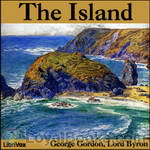 The Island
The Island
Written late in his career, Byron's narrative poem The Island tells the famous story of the mutiny on board the Bounty, and follows the mutineers as they flee to a South Sea island, "their guilt-won Paradise." | |
 The Works of Lord Byron. Vol. 2
The Works of Lord Byron. Vol. 2
| |
By: Louisa May Alcott (1832-1888) | |
|---|---|
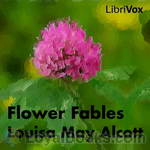 Flower Fables
Flower Fables
Flower Fables is Louisa May Alcott’s first book, penned at 16 for Ralph Waldo Emerson’s daughter, Ellen. | |
 Three Unpublished Poems
Three Unpublished Poems
| |
By: Louise Imogen Guiney (1861-1920) | |
|---|---|
 England and Yesterday
England and Yesterday
Louise Imogen Guiney was an American poet, well-connected in the art of her time. Much of her life was spent in England, mostly at London and Oxford. This volume of poems contains, among other poems, 24 sonnets written in those two cities. - Summary by Carolin | |
 White Sail
White Sail
This is a collection of poems by Louise Imogen Guiney. The collection is split into four parts. After the titular poem, which is its own part, this volume contains ten narrative poems concerning some well-known and some lesser known legends. The third part of the volume is one of lyrics, and the fourth contains a number of sonnets. - Summary by Carolin | |
 Roadside Harp
Roadside Harp
This is a collection of poems by Louise Imogen Guiney. - Summary by Carolin | |
By: M. L. Hope | |
|---|---|
 Indian and Other Tales
Indian and Other Tales
| |
By: Maciej Kazimierz Sarbiewski (1595-1640) | |
|---|---|
 The Odes of Casimire, Translated by G. Hils
The Odes of Casimire, Translated by G. Hils
| |
By: Madame (Jeanne-Marie) Leprince de Beaumont (1711-1780) | |
|---|---|
 Think Before You Speak or, The Three Wishes
Think Before You Speak or, The Three Wishes
| |
By: Madison Cawein (1865-1914) | |
|---|---|
 September
September
Librivox volunteers bring you ten readings of September by Madison Cawein. This was the weekly poetry project for the week of September 21st, 2014. | |
 Don Quixote
Don Quixote
Madison Julius Cawein was born in Louisville, Kentucky. After graduating from high school, Cawein worked in a pool hall in Louisville as a cashier in Waddill's New-market, which also served as a gambling house. He worked there for six years, saving his pay so he could return home to write. His output was thirty-six books and 1,500 poems. His writing presented Kentucky scenes in a language echoing Percy Bysshe Shelley and John Keats. He soon earned the nickname the "Keats of Kentucky". Note: In Greek mythology, Hippocrene was the name of a spring on Mt... | |
 Time and Death and Love
Time and Death and Love
Madison Cawein was a poet from Louisville, Kentucky. His output was thirty-six books and 1,500 poems. His writing earned the nickname the "Keats of Kentucky". This Weekly poem was published in his book "Shapes and Shadows". (1898) | |